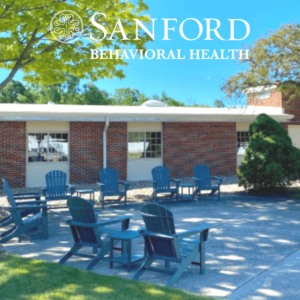How to Help a Depressed Partner
 Are you wondering how to help a depressed partner? It can be challenging to know what to do when someone you love is struggling with depression. Depression is a serious mental health condition that affects millions of people around the world. Recognizing the signs of depression and how to support a depressed partner, you can be an advocate for their mental health and help them on their journey to recovery.
Are you wondering how to help a depressed partner? It can be challenging to know what to do when someone you love is struggling with depression. Depression is a serious mental health condition that affects millions of people around the world. Recognizing the signs of depression and how to support a depressed partner, you can be an advocate for their mental health and help them on their journey to recovery.
Sanford Behavioral Health offers several options for mental health treatment in Michigan that can help your partner overcome depression. Our team of experienced professionals offers personalized treatment plans to address individual needs and promote overall well-being. Take some time today to reach out to us at 616.202.3326 to learn how to help a depressed partner and encourage them to seek professional mental health treatment.
Understanding Depression and Recognizing Its Signs
Depression is more than just feeling sad—it’s a complex mental health condition that can affect every aspect of a person’s life. It’s vital to approach this topic with compassion and patience, as the symptoms can be subtle and complex to discern from the outside. If you suspect your partner is struggling with depression, look for the following signs:
- Persistent feelings of sadness, hopelessness, or emptiness
- Loss of interest in activities once enjoyed
- Changes in appetite or weight
- Difficulty sleeping or oversleeping
- Lack of energy or increased fatigue
- Difficulty concentrating, making decisions, or remembering details
- Feelings of worthlessness or excessive guilt
- Irritability or restlessness
- Physical symptoms without a clear physical cause, such as headaches or stomachaches
- Thoughts of death or suicide
Recognizing these signs is the first step in helping your partner find the support and treatment they need to heal.
How to Help a Depressed Partner: Starting the Conversation
Initiating a conversation about depression with your partner requires delicacy, understanding, and unconditional support. Begin by choosing a comfortable, private setting where your partner feels safe and is more likely to open up. Express your concerns without judgment, focusing on observations and feelings rather than diagnoses or assumptions. Use “I” statements, such as “I’ve noticed you’ve been feeling down lately, and I’m really concerned about you,” to convey your empathy and care without placing blame.
Some additional tips when helping a depressed partner:
- Encourage them to seek professional help and offer to accompany them to appointments
- Listen actively and empathetically to their feelings without offering quick fixes
- Provide emotional support through small acts of kindness and affection
- Be patient and understand that recovery is a gradual process
- Educate yourself about depression to better understand what your partner is experiencing
- Help them establish a daily routine that includes physical activity and time outside
- Encourage them to engage in activities that they used to enjoy, even if they don’t seem interested at first
- Avoid making judgmental comments or trying to compare their experiences
- Make sure they know that they are not a burden and that you are there for them
- Help them maintain a healthy diet and sleep schedule
- Encourage them to limit alcohol intake and avoid non-prescribed drugs, which can worsen depression
- Offer to help with daily tasks that may seem overwhelming to them
- Be mindful of your own mental health and seek support for yourself if needed
- Gently discourage the endless examination of negative thoughts and instead focus on positive moments
- Recognize and celebrate small achievements and the progress they make toward recovery
Following these tips can help you support your partner and show them that they are not alone in their struggle with depression. Remember to take care of yourself as well and seek professional help if needed.
Call Sanford Behavioral Health for Depression Treatment and Support in Michigan
At Sanford Behavioral Health, we understand the impact of depression on individuals and their loved ones. That’s why we offer a range of evidence-based treatment options to help your partner regain control over their life and mental well-being. With depression treatment, you and your loved one can learn valuable coping skills and build a strong support network to manage symptoms and maintain lasting recovery.
Don’t wait any longer—reach out to us by calling us at 616.202.3326 or contacting us online to discover more about our mental health treatment programs in Michigan and how you can help your partner overcome depression.


